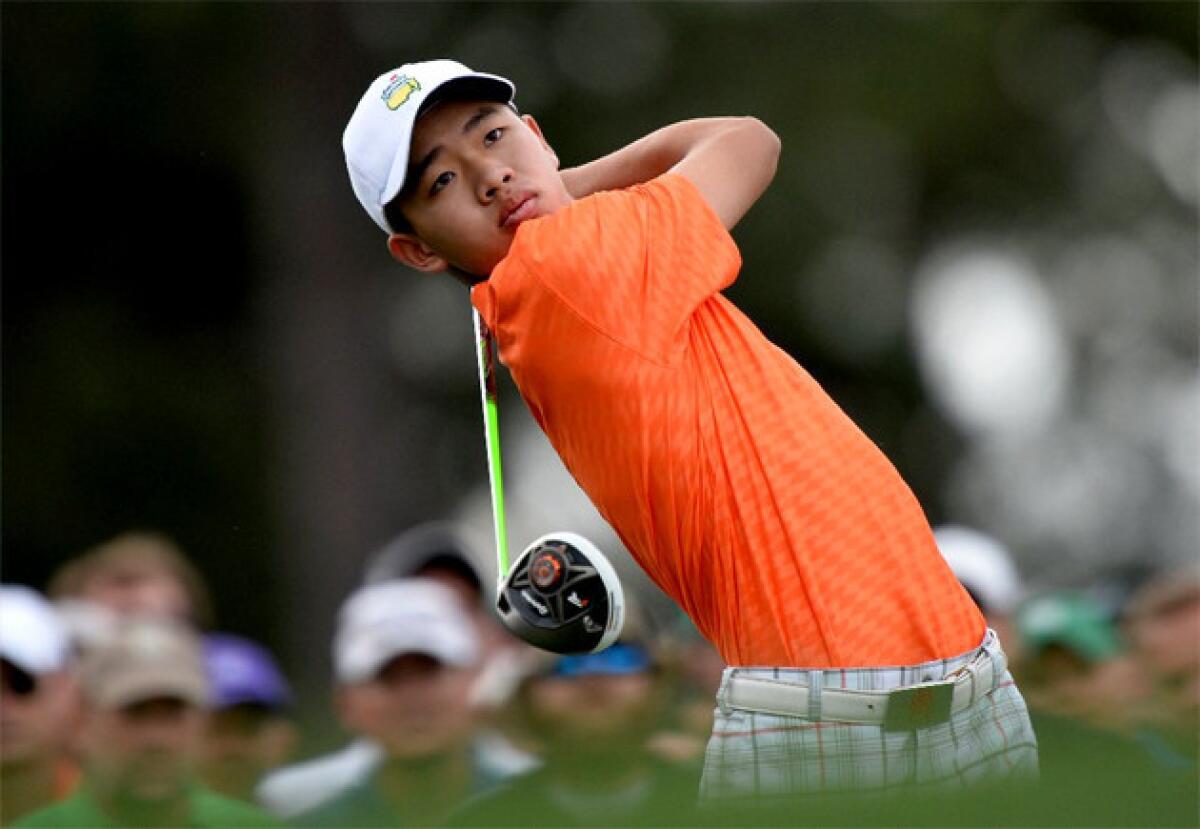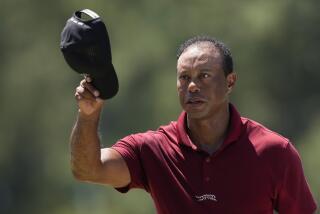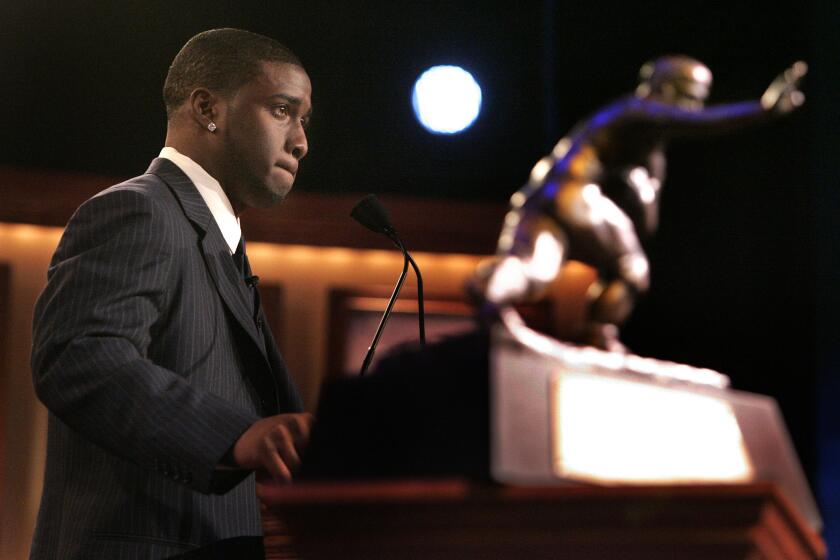John Paramor’s stroke-penalty on Tianlang Guan was the right call

AUGUSTA, Ga. — In the aftermath of Friday’s controversial slow-play penalty at the Masters, there were many dueling opinions. We’ll go with “Bravo, John Paramor.”
He is the rules official from England, affectionately (or otherwise) known as Big John. He has been at this since 1976 and is known and properly feared worldwide by pro golfers.
Over the years, the Masters has had several shots heard ‘round the world. When Paramor walked up to 14-year-old amateur Tianlang Guan of China on the 17th tee Friday and informed him he was being assessed a one-shot penalty for slow play, it was another one. The news skittered through the magnolias and azaleas like a candy wrapper in the wind.
What if that one shot cost golf’s newest prodigy a chance to make the cut?
Would golf fans in China, so thrilled by the Masters’ inclusion of the Asian Amateur champion in its field and so captivated by this 140-pound eighth-grader, change their perception of the tournament?
Would Guan’s playing partner Ben Crenshaw, a two-time Masters champion, be correct when he walked over to an acquaintance on the 18th tee and speculated that there was about to be “an international incident?”
Was Guan being treated unfairly? Would the Masters’ nearly spotless public relations image — at least when it comes to running a golf tournament — be in jeopardy?
The better question was a two-parter: Did Guan break the rules, did he take longer than the prescribed 40 seconds allowed to hit when it is your turn? And will any good come from this?
One observation was clear. The time between the departure from the 18th green of the threesome of Steve Stricker, Nick Watney and Ernie Els and the arrival of the Guan threesome in the distance on the fairway was at least 20 minutes.
Crenshaw, who said afterward that he “felt sick about this,” also said about Guan, “There’s no question he played slowly sometimes.”
Matteo Manassero of Italy, who will be 20 next week and was the previous youngest-ever in the Masters at 16, was the other member of the Guan threesome and said afterward, “He’s been slow … sometimes, he had the right club, his caddie pulled his club for him, but to be sure, he’d ask one more question.”
Both Crenshaw and Manassero defended Guan, pointing out how the swirling wind had made club selection difficult. Neither Crenshaw nor Manassero was penalized.
Some perspective here. Slow-play penalties have been nearly nonexistent in the United States. At a dinner of European officials here Tuesday night, one cited a startling statistic: Since 1997, he said, there have been 22 one-stroke assessments on the European tour and its challenger affiliate; on the parallel U.S. tours, there have been zero.
European officials routinely work U.S. events, and vice versa. The casual dinner conversation included much talk about slow play and its long-term effect on the game.
The consensus was that slow play was gradually eroding golf’s appeal, that there were only so many six-hour rounds in a player’s life before the clubs were put away in the garage. Forever.
The point was made that a game of fiddling and waggling, gripping and re-gripping and standing for long seconds over a shot in semi-paralysis is a game of decreasing appeal.
Paramor is no stranger to tough decisions and controversy. In a tournament in 1994 at Valderrama, Spain, he denied the revered Seve Ballesteros a drop near a tree on the 18th hole. A furious Ballesteros pitched out and lost the tournament. He also disqualified Ballesteros when the fiery Spaniard refused to sign a scorecard that included a one-shot penalty.
In 2009, Tiger Woods and Padraig Harrington were dueling down the stretch of the WGC-Bridgestone Invitational tournament, when Paramor put Harrington on the clock. A rattled Harrington lost to Woods, who speculated later that Paramor had disrupted a dramatic finish.
In the end Friday, Crenshaw turned out to be, uncharacteristically, wrong. In the immediate aftermath, he had said, “This is not going to end up being pretty.”
In fact, it did.
In a TV interview, Guan said, “I respect the decision.”
Then, tournament leader Jason Day’s late charge fell just shy enough to allow Guan to make the cut on the number at four-over par.
There had been a foul, but no harm.
Paramor’s ruling had sent the message. Every golfer paying attention, especially several million young ones in China following Guan’s every step, will cut the swagger and start the swing next time.
Thanks to Paramor, the issue, long ignored, came to the forefront.
Before Friday, the last player assessed a stroke penalty in a PGA event was Glen Day in 1995. His pace of play was legendary.
His nickname was “All.”
More to Read
Get our high school sports newsletter
Prep Rally is devoted to the SoCal high school sports experience, bringing you scores, stories and a behind-the-scenes look at what makes prep sports so popular.
You may occasionally receive promotional content from the Los Angeles Times.







